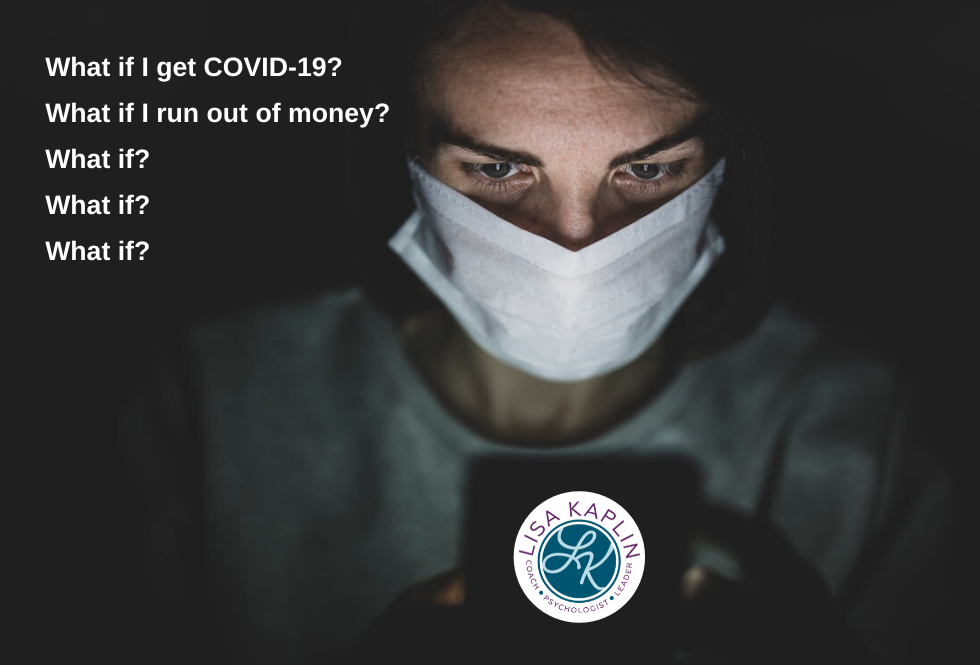What if I get COVID-19? What if one of my family members gets it? What if I can never find a job again? What if I run out of money? What if the sky falls and there is nowhere for me to go? What if this recession turns into a depression? What if we can’t find a vaccine or cure for the Coronavirus? What if? What if? What if?
How many of you have fallen into the “What if?” camp? My hand is raised! I’ve done it and I’ve done it almost daily. I’ve done it even though I know it isn’t helpful. I’ve done it even though I’m both a psychologist and a professional coach and I know how unhelpful it truly is. So how can we survive our own “what if” scenarios?
One way to NOT survive it is to tell yourself that you’re stupid for thinking or feeling that way. Not validating your own concerns is the quickest way to shame yourself and to feel even worse. The other way to NOT survive it is to share your “what ifs” with others who aren’t compassionate and will only tell you to, “stop worrying about that.” That’s really diminishing and not helpful at all.
Leaning In to Our Fears
Here’s how I survive my “what if” thinking: I go there. Yep, I go to the worst-case scenario and I look it right in the face. What if I get the virus? If I get it, I’ll get the medical help that is available to me and I will control what I can. What if one of my family members gets it? I will quarantine them, seek out medical help and wash the heck out of my hands.
During this pandemic, lean in to your fears instead of trying to avoid them. Figure out what you can control, make a plan, and then release the rest. #Coronavirus #COVID-19 #fear #anxiety Click To TweetI look at the “what ifs” and then logically come up with a solution for those worst- case scenarios. By doing this, I figure out what I can control and what I can’t and then I let go of what I can’t control. By doing this, I put a plan into place for what is under my control and I release what isn’t. I face my worst fears and then plan how to manage them. When I do this, I release some fear and anxiety and I feel like I have control over some aspects of this scary situation.
When I think about the “what ifs” and then try to deny that they scare me, I only push down my feelings and ultimately feel more anxious and worried. That has never helped. So consider facing your biggest fears and then coming up with a safety net plan to manage them. Let me know how you do.
Love,

Lisa Kaplin Psy. D. PCC

